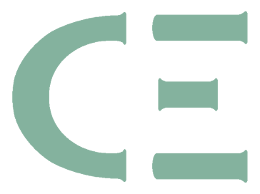Double Degree in Computational Engineering
Double Degree in Computational Engineering
Students of Computational Engineering can obtain a double Master’s degree from two leading European universities. Students who wish to use the opportunity must study at least one semester at the Università della Svizzera italiana (USI) in Lugano, Switzerland. According to the agreement between the universities, both universities will award the candidate a master’s degree, giving the graduates an important extra qualification for the international job market.
The study program is essentially symmetric. Students from FAU can, following successful completion of first year’s study, move to the partner university, and incoming students can complete their second year in Erlangen. The first year program at the “home” university covers advanced basics of Computational Engineering, and the second year at the “Guest” university is devoted to depth in a choice of specializations, and to the writing of the Master’s thesis.
The programs at the partner universities are international and the instructional language is English. At least for the study, no further language skills are required, with the result that a large percentage of the students are from third countries. The exchange is organized via the Erasmus+ program.
Acknowledging the need for highly trained personnel in the area of CSE, both in industry and in academia, Master Courses in CSE were introduced by the two partner universities independently. The two universities therefore belong to the first pioneers of this new field in Europe. However, both institutions did not only initiate the systematic CSE education in Europe, but they have been continuously active in the further development of CSE education. The continuous adaptation is essential because of the rapid evolution in this exciting new branch of science.
What is CSE? Why CSE?
The demand for CSE skills is driven by the remarkable development of large scale computing into the third paradigm of science, where computing complements theory and experiment to become a third fundamental approach to scientific discovery. With computer simulations and optimization of mathematical models this multi-disciplinary field has been established as a new discipline. CSE offers scientists new insight in scientific problems and tools for extracting and using detailed information from volumes of data. CSE has enabled drastic shortening and economization of the design cycle for products and processes, and virtual prototyping is used successfully by aerospace, automotive, and processing industries, as well as in medical technology.
For the students participating in the program, a notably high measure of flexibility and mobility may be assumed. The program strongly encourages leaving well-trodden paths in favor of venturing into the new and unknown. Students will also become effectively tri-lingual, in the everyday life sense, in German, Italian, and English, in addition to their mother tongue. Through the study program they achieve mastery of a number of the disciplines involved in CSE and become an interesting resource for industrial partners. Many firms have seen the potential of early promotion of their specific applications and take the opportunity to form close ties with highly qualified future collaborators.
Such promotion is of special interest for corporations with activities in Switzerland and Germany and in the home countries of the participating students. Internships, thesis projects, and scholarships open the door for the companies to human resource management by ways of scientific collaboration with academia, and for graduates to exciting careers in industry.
FAQ
You’ll find answers to the questions we get asked the most about applying for the Double Degree program in Computational Engineering here:
Event-Introduction Blitz of FAU-USI double-degree
When: Wednesday, May 10, 2023 @ 16:00 to 17:00 (CET)
In-Person Location: FAU, Martensstraße 3, 91058 Erlangen (Blue Computer Science Tower, 2nd floor, 02.152-113)
Zoom Link: https://fau.zoom.us/j/64903752573?pwd=SDBSb1JJYW5RK25MYTlNSnNCS2k0UT09
Meeting-ID: 649 0375 2573 Passcode: 283091
A cordial invitation to attend the USI-FAU Computational Science and Engineering double degree program info event. We are planning to have an Introduction Blitz of our FAU-USI double-degree. Our goal is to have an interactive session for all members of the CE/MCS community to associate faces with names and learn some fun facts about fellow attendees (both scientific and not!).
The preliminary agenda for the event is as follows:
Welcome (Eftekhari/Fey/Köstler)
· Introduction Blitz (Schmutterer)
– All attendees (both students and professors) are asked to prepare a 30 second presentation of themselves with a single presentation slide.
– Please send your slide in PDF format to Michael Zikeli <mailto:michael.zikeli@fau.de> by noon (CET) Monday May 8th.
– naming convention for slide: blitz _familyname_firstInitail.pdf
· USI’s MCS presentation on the MCS program at USI
· FAU’s CE presentation on the program at FAU
· Q&A
Please remember to send your Blitz presentation slide (PDF) by noon, Monday May 8th. For inspiration, please see the blitz presentation slide of Dr. Felix Schmutterer.
Contact
For further information concerning the CE double degree program in Erlangen and Lugano, please contact:
- Prof. Dr.-Ing. Harald Köstler: Harald.kostler[at]fau.de
- Prof. Dr. Gerhard Wellein: Gerhard.Wellein[at]fau.de
